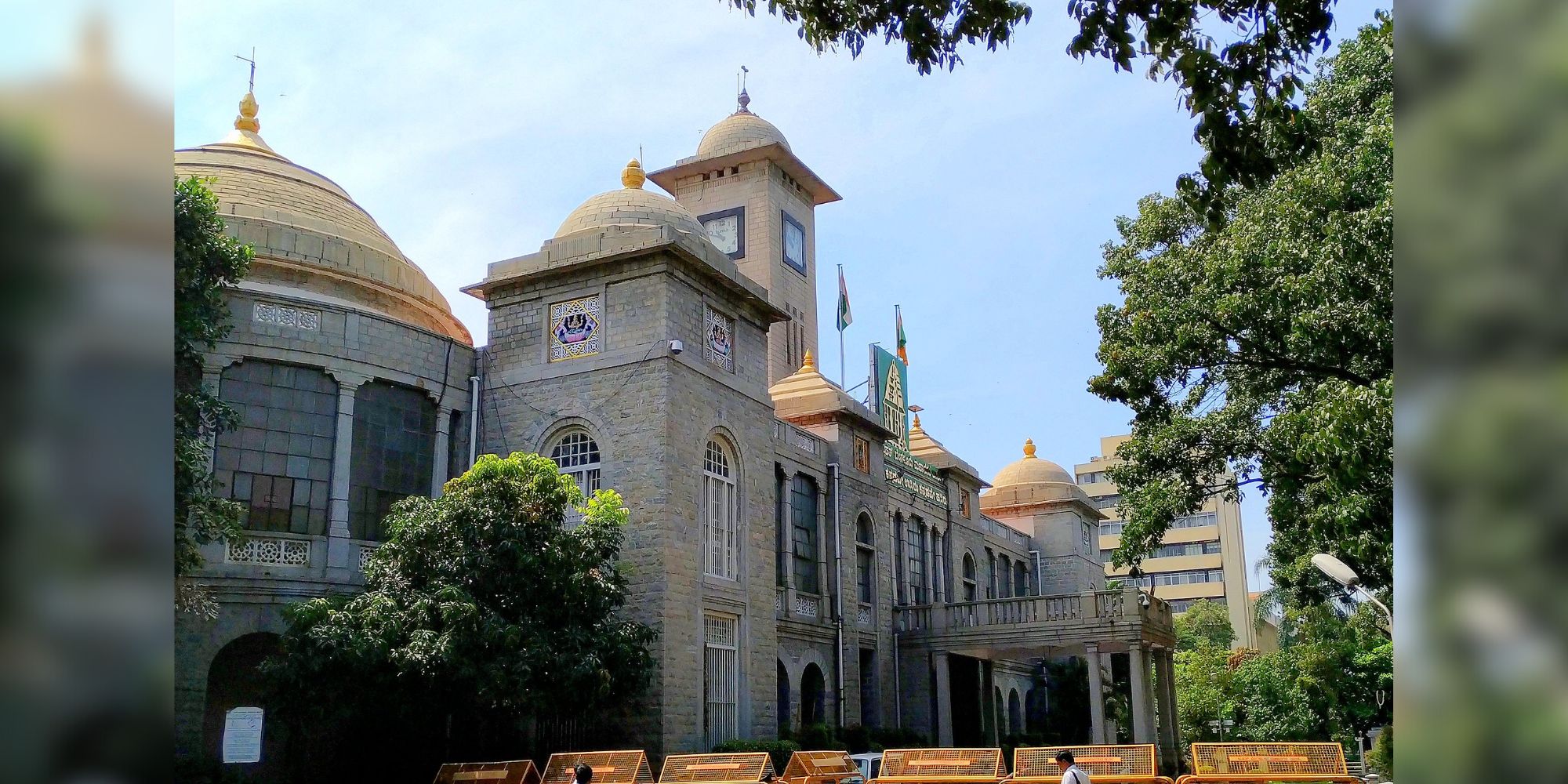The delay in holding BBMP elections stems from political manoeuvring, administrative changes, and legal challenges.

File photo of the BBMP. (Creative Commons)
It has been nearly four years since the Bruhat Bengaluru Mahanagara Palike (BBMP) — the administrative body responsible for overseeing civic and infrastructural assets in Bengaluru — last conducted council elections.
This extended period without an elected council has severely impacted the city’s governance, reducing political accountability and transparency and leading to a disconnect between the bureaucracy and the public’s needs.
Such a governance misalignment does not reflect the citizens’ priorities and underscores the urgent need for the reinstatement of an elected body.
As citizens, your demand for change is crucial in addressing these issues effectively.
The delay in holding BBMP elections stems from political manoeuvring, administrative changes, and legal challenges.
Political parties were reluctant to conduct elections due to internal conflicts over candidate selection and potential effects on broader electoral strategies, particularly with the Lok Sabha and Assembly elections approaching as time went by.
Administrative adjustments — such as the 2023 delimitation that restructured electoral wards, increased their number from 198 to 243, and finally settled at 225 wards —introduced complexities that delayed the electoral process.
Legal disputes concerning reserving reservations for OBCs, women, and other groups further complicated matters.
The Justice Bhaktavatsala Commission’s report, intended to address political representation for OBCs, was challenged in the high court for an insufficient investigation into patterns of backwardness, leading to calls for a re-evaluation of the reservation criteria.
The ongoing delays and the absence of elected officials have had a tangible negative impact on civic management and public engagement in Bengaluru, which is home to approximately 1.4 crore people and has a significant budget allocation of ₹12,371 crore for 2024-25.
The current governance structure, operated by government-appointed officials, lacks the democratic accountability and local insight that elected councillors could provide.
This deficiency is apparent in the dysfunction of essential mechanisms like ward committee meetings, which are crucial for addressing regional issues like water scarcity but are now postponed indefinitely due to the absence of active councillors.
Such inadequacies emphasise the critical need for elected representatives to ensure effective governance and allow citizens to address everyday challenges like water supply, road maintenance, and waste management more satisfactorily.
The urgency of this situation cannot be overstated.
Abdul Wajid, a Congress leader, attributed the delay in BBMP elections primarily to actions taken by the previous BJP government in the state.
He claimed that BJP prolonged the electoral process due to fears of losing power.
According to Wajid, this led to continuous changes in legislation and electoral ward structuring, including reducing the number of wards to 243 and later adjustments made by the current Congress government to set the number at 225 following a high court order.
The sequence of events saw further complications due to it overlapping with the May 2023 Karnataka Assembly elections and the just-concluded Lok Sabha polls, which imposed additional delays due to electoral codes of conduct.
Despite these challenges, Wajid expressed confidence — echoed by Deputy Chief Minister DK Shivakumar in various interviews — that the BBMP elections would proceed promptly after the Lok Sabha polls.
He projected a timeline that could see electoral processes beginning by October after the lifting of the Model code of conduct — likely by early June.
This timeline suggests four months before the elections are held to restore local governance structures that have been delayed over several electoral cycles.
Experts have expressed grave concern about this democratic deficit.
Civic expert Kathyayini highlighted the non-conduct of the BBMP elections as a “Constitutional violation”, arguing that such polls should not be postponed for more than six months.
She pointed to the lack of a “third-tier government” as a major cause for her concern.
She noted that the people’s grievances needed to be addressed due to the disinterest of nodal officers in fulfilling their duties, exacerbating inefficiencies within the civic management.
These concerns underlined the urgent need for a democratic overhaul in Bengaluru.
Ravichandra, a former member of the BBMP Restructuring Committee, noted that while the involvement of IAS officers prevented severe inefficiencies, the absence of an elected council “hit the spirit of democracy.”
The disconnect between the people and their representatives significantly weakened local governance, he said.
Brinda Adige from the non-profit organisation Global Concerns India argued that the absence of an elected council resulted in “no political accountability” and merely administrative operations without citizen involvement, consultation, or accountability, frustrating Bengaluru’s residents.
She criticised the restructuring committee’s inability to address the city’s challenges effectively due to political interference and the dominance of MLAs who controlled decision-making and funds.
Adding to the chorus, activist Srinivas Alavilli pointed out the significant impact of having no elected councillors.
According to Alavilli, the absence of representatives had left Bengaluru residents without a clear recourse for addressing grievances and undermined the broader role councillors played beyond BBMP boundaries.
He explained that councillors often assisted citizens with state government schemes, and many community issues still needed to be solved with their intervention.
Alavilli also observed that MLAs were generally opposed to conducting BBMP elections because they feared losing influence: People prefer approaching accessible councillors for local issues, which could diminish the power MLAs currently wield.
(Edited by Arkadev Ghoshal)

Jul 26, 2024

Jul 26, 2024

Jul 26, 2024

Jul 26, 2024

Jul 26, 2024

Jul 26, 2024